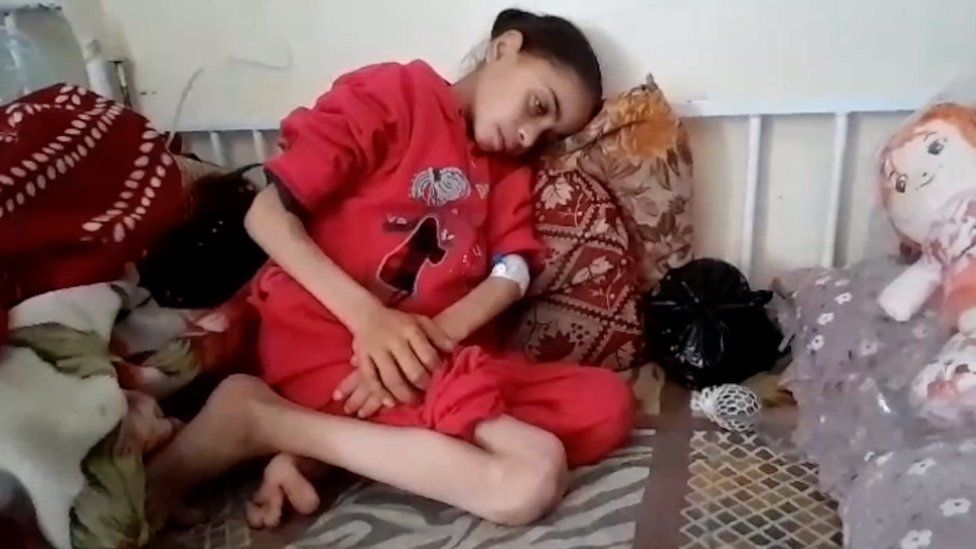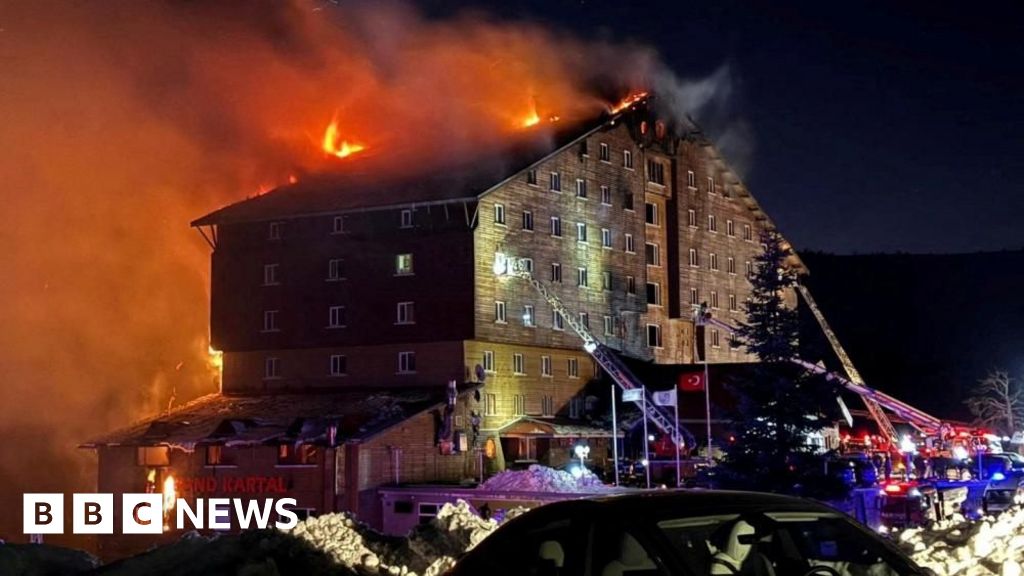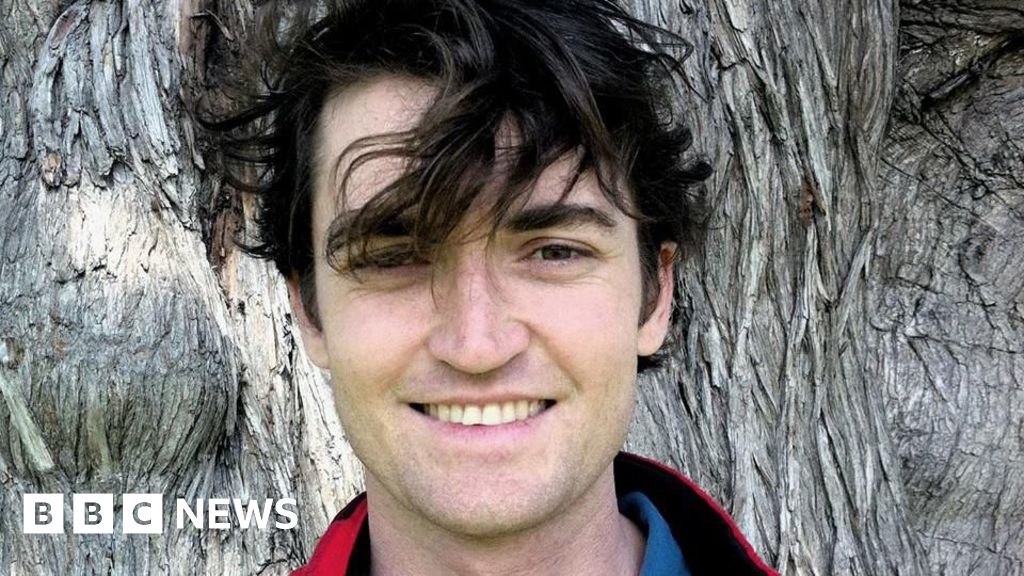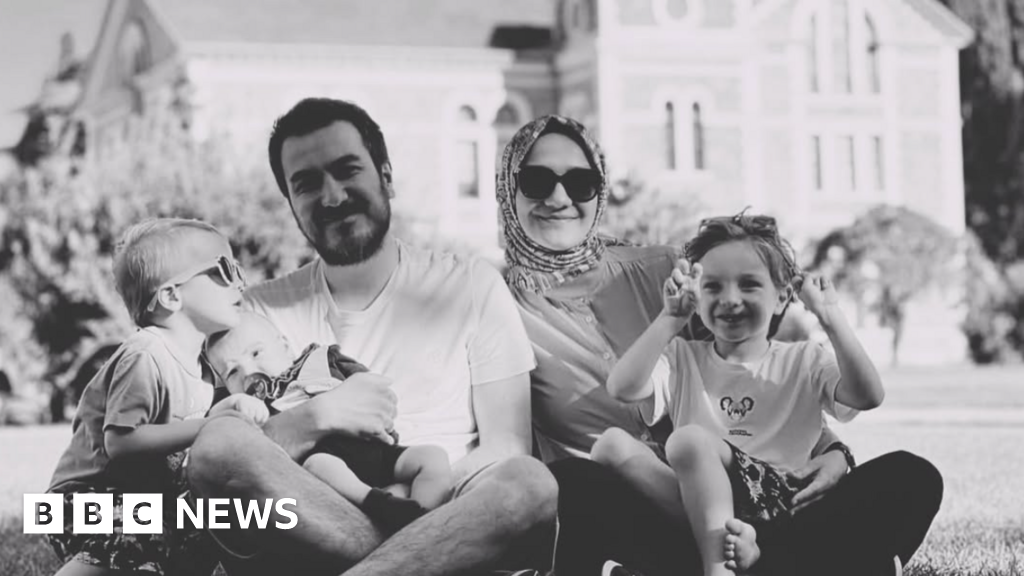ARTICLE AD BOX

Noora Mohammed can't get the treatment she needs in a Gaza hospital
By Jeremy Bowen
BBC international editor, Jerusalem
After months of warnings, a recent UN-backed report offered hard statistical evidence that the humanitarian catastrophe in Gaza is turning into a manmade famine.
It has increased the pressure on Israel to fulfil its legal responsibilities to protect Palestinian civilians, and to allow adequate supplies of humanitarian aid to reach the people who need it.
The UN's most senior human rights official, Volker Türk, said in a BBC interview that Israel bore significant blame, and that there was a "plausible" case that Israel was using starvation as a weapon of war in Gaza.
Mr Türk, who is the UN high commissioner for human rights, said that if intent was proven, that would amount to a war crime.
Israel's economy minister, Nir Barkat, a senior politician in Benjamin Netanyahu's Likud party, dismissed Mr Türk's warnings as "total nonsense - a totally irresponsible thing to say".
Like his cabinet colleagues, Mr Barkat insisted that Israel was letting in all the aid offered by the US and the rest of the world. Israel says the UN fails to distribute whatever is left once Hamas has helped itself.
But a long line of lorries fully loaded with aid supplies desperately needed in the Gaza Strip is backing up on the Egyptian side of the border with Rafah. They can only enter Gaza through Israel, after a complex and bureaucratic series of checks.
The absence of adequate supplies has forced Jordan, and now other countries including the US and UK, to drop aid from the air - the least effective way to deliver humanitarian supplies.
Palestinians on the ground fighting to secure a share have drowned as they try to swim to pallets that have landed in the sea, or have been crushed when parachutes fail.
Watch: Gazans reportedly drown after video shows rush for aid drop that landed in sea
The US Navy is also sending an engineering flotilla across the Atlantic to build a temporary pier to land aid by sea.
None of that would be necessary if Israel granted full road access to Gaza and expedited the delivery of relief supplies through the modern container port at Ashdod, only about half an hour's drive north of the Gaza Strip.
In an interview from Geneva, Mr Türk said evidence had emerged that Israel was slowing down or withholding the delivery of aid.
Mr Türk condemned the Hamas attacks on Israeli civilians and soldiers on 7 October, including killing, rape and hostage-taking. But he also said that no side in the war should evade accountability for its actions, including for any attempt to withhold aid supplies from the people who need it in Gaza.
"All of my humanitarian colleagues keep telling us that there is a lot of red tape. There are obstacles. There are hindrances… Israel is to blame in a significant way," he said.
"I can only say the facts speak for themselves… I understand that this needs to be controlled, but it cannot take days for it to be done.
"When you put all kinds of requirements on the table that are unreasonable in an emergency… that brings up the question, with all the restrictions that we currently see, whether there is a plausible claim to be made that starvation is, or may be used as, a weapon of war."
Concern about humanitarian catastrophe in the Gaza Strip deepened last week with the release of a soberly written commentary alongside a series of maps, charts and statistics. It prompted more warnings from Israel's allies that it should change the way it is fighting the war against Hamas to spare civilians from death from either high explosive or hunger.
The study is the latest report from a respected international network, the Integrated Food Security Phase Classification, known as IPC. It provides governments, the UN and aid agencies with apolitical data to measure the scale of hunger. The headline on the report was stark - "Gaza Strip: Famine is imminent as 1.1 million people, half of Gaza, experience catastrophic food insecurity."
Its data explained how famine could come at any time in the next eight weeks or so if there was no ceasefire and relief aid did not pour into the Gaza Strip.
Palestinian parents who had managed to bring sick and hungry children to one of the few hospitals still operating in Gaza after Israel's onslaught did not have to wait for the statistics. For weeks and months, as they struggled to feed them, they have watched their children decline.
Gaza is no place to be ill. One young girl at the hospital, reached by a Palestinian freelance journalist working for the BBC, lay semi-conscious on a bed.
The girl, Noora Mohammed, has lung and liver fibrosis, conditions that can be fatal even in peacetime. In the months of starvation since the war began, and without the right medical care, she is deteriorating fast.
"My daughter can't move," her mother said. "She's anaemic, always sleeping, and there's nothing nutritious to eat."
At least Noora reached hospital. Most of just over one million Gazans considered to be in acute need will not have that option.
The evidence of Gaza's humanitarian catastrophe is overwhelming. Our pictures from the hospital showed children with swollen joints, wasted limbs and dermatitis, all classic symptoms of acute malnutrition.
There are signs among children of acute malnutrition
Israel has ignored the UN Security Council resolution demanding an immediate ceasefire. Nir Barkat, the Israeli economy minister, said that nothing would be allowed to get in the way of Israel's war aim of smashing Hamas for good and freeing the hostages taken on 7 October.
Allies around the world, he said, supported Israel's strategic goal. When I pointed out many of Israel's friends, starting with US President Joe Biden, did not like the way Israel was fighting the war, Mr Barkat was blunt.
"That's tough. We are going to finish the war. We'll do everything we can to kill the Hamas terrorists and to minimise collateral damage as much as we can," he said.
"With all due respect, we're fighting evil, and we expect the world to help us fight evil until we finish Hamas off the map."
The UN high commissioner for human rights had a succinct response to stinging criticism from Israel.
"The only thing I can say to them is that there is an emerging international consensus, and it may not have been there before, but it is clearly there now, including with this week's Security Council resolution, on the humanitarian situation," Mr Türk said.
"The human rights situation is so tragic that an immediate ceasefire is required. That's my response to that."

 9 months ago
70
9 months ago
70








 English (US) ·
English (US) ·